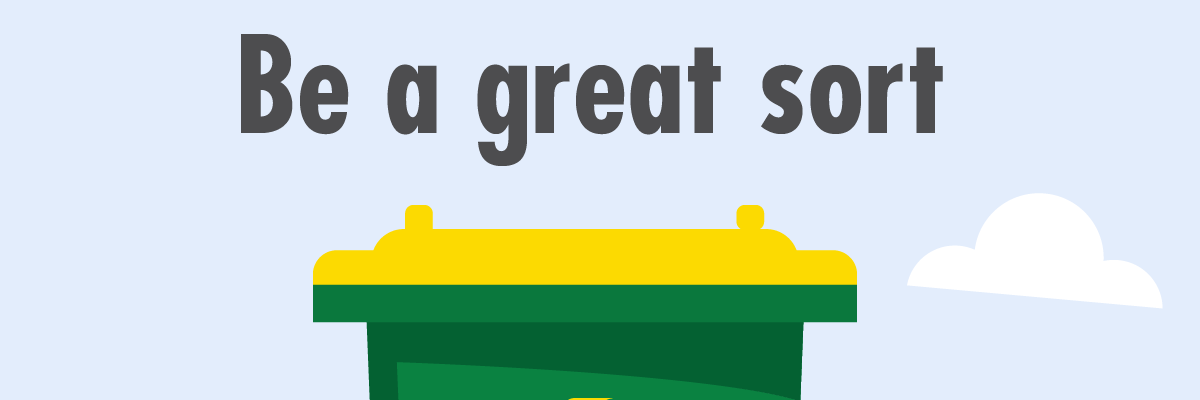Waste & Recycling Guide
Read the Waste and Recycling Guide (contains calendar) to find out how you can help reduce waste and minimise costs by sorting your waste.
For more specific information on what can be placed in your general waste bin (grey or red-lidded), your yellow-lidded recycling bin or as part of bulk verge collections, refer to the City's Kerbside Waste & Recycling Bin Services.
Note: To save costs, printed guides are not automatically delivered to households. You can request a printed copy from our libraries or by calling the City on 9397 3000.
How to sort your waste
The City has produced simple-to-follow guides which are available in 16 different languages. These are perfect for placing on a fridge or wall and are a great way to share information with family and friends. The A4 flyers are available for collection from all City of Gosnells libraries and at the Civic Centre. To download and print a copy in your language, click on the relevant link below.
Special waste guide
There are many common household items which cannot be placed in your general waste bin (grey or red-lidded bins) or your recycling bin. However, there are often environmentally responsible disposal options in and around the City of Gosnells.
The City of Gosnells has produced a Special Waste Guide to help you quickly identify options and point you in the right direction. Download or collect a copy from the Operations Centre (2 Canning Park Avenue, Maddington), Civic Centre or any of the City's libraries.
Household hazardous waste drop-off points
Although none of the Western Australian Government's Household Hazardous Waste (HHW) facilities are located within the City of Gosnells, there are two located close by:
- Ranford Road Resource and Waste Transfer Station (81 Ranford Road, Canning Vale)
- Armadale Landfill and Recycling Facility (145 Hopkinson Road, Hilbert).
Refer to Household Hazardous Waste for more information.
How you can be a GREAT sort
Ideally, we all should be doing what we can to prioritise waste avoidance, then reuse or repurpose what we can BEFORE we even consider what bin something should go in. You can be a GREAT sort by following some of these simple tips.
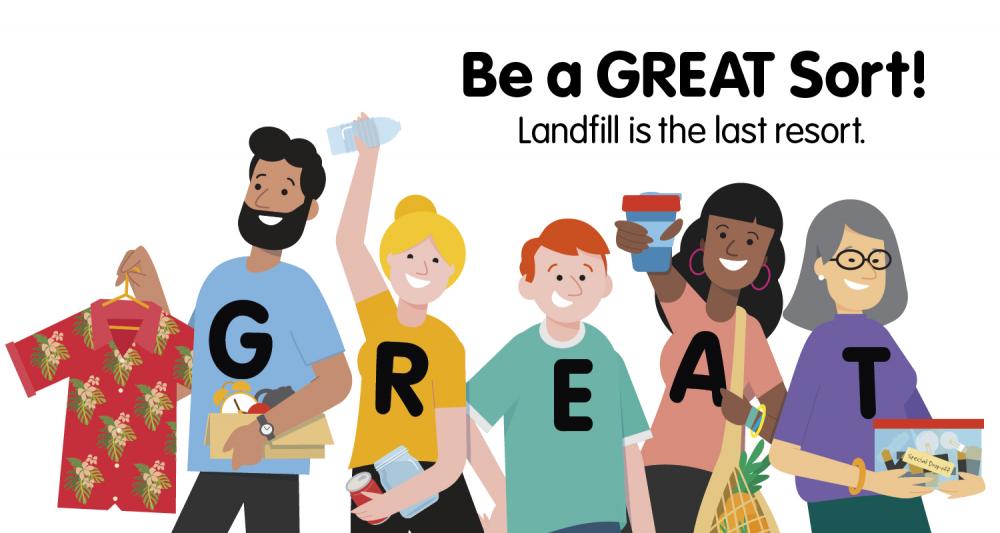
GIFT
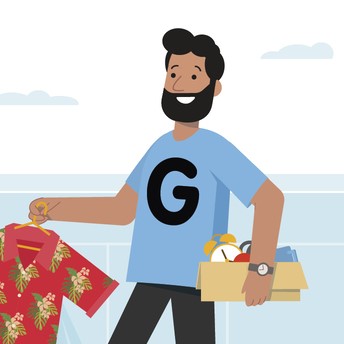 | GIFT to charity, swap or sell Unwanted, reusable things such as clothes and toys in good condition can be gifted. Find your nearest charity store or donation bin at Charitable Recycling You can swap, sell or gift your items using these platforms: A great way to donate technological and gaming equipment is to take it to Sam's Spares in Gosnells. Sam's Spares refurbishes and re-gifts the equipment to people in need through a network of peer partners. |
RECYCLE
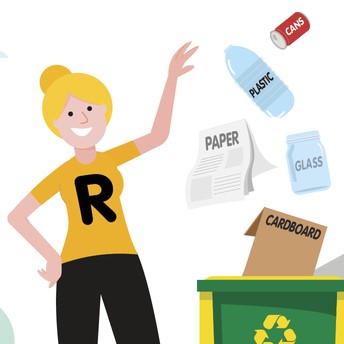 | RECYCLE through your kerbside recycling bin Discover ways in which you can recycle items which are prohibited from being placed in either bin. It's important to know what you can place in your recycling bin and what your options are if something cannot be placed in your bin. You can recycle clean paper, cardboard, steel and aluminium cans, glass bottles and jars, plastic bottles and containers through your yellow-lidded recycling bin. Items must be loose (not contained in boxes or bags), lids removed and free from contamination such as liquids, food residue and excessive tape, for example. Many beverage containers between 150ml - 3L can be recycled at a Containers for Change refund point. To find out which containers are eligible for a refund, check for the 10c mark on the side of a container or go to the Containers for Change website. |
EARTH-CYCLE
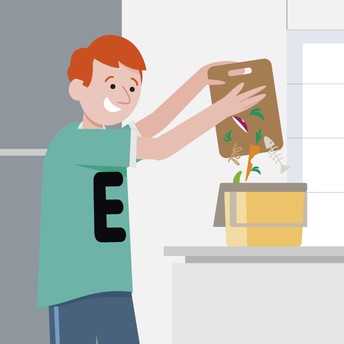 | EARTH CYCLE food scraps and garden wasteIf you have sufficient space at home and a bit of time, it's easy to turn food scraps and garden waste into compost. Little space is required to maintain a worm farm or bokashi bin which are very efficient ways of processing food waste. What's more, both methods produce products which can boost the soil and garden health. Garden waste can be disposed of through the City's twice yearly garden waste verge collection or can be managed at home with the use of a composting bin. Get a discount on a worm farm, bokashi bin through Switch Your Thinking's Rewards for Residents Program. If you're not willing or able to manage your food and garden waste at home, you can still earth-cycle by participating in the City of Gosnells GOSFO waste pilot program or a local ShareWaste initiative. |
AVOID
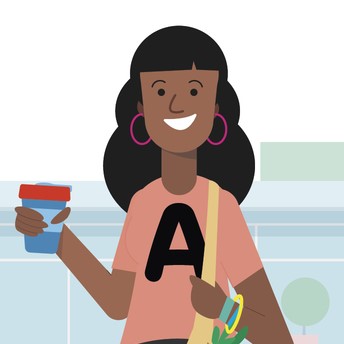 | AVOID excess packagingUse: - Alternatives to plastic food wrap like glass or stainless steel containers, beeswax wraps and reusable food covers
- Your own water bottle out and refuse bottled water
- Alternatives to disposable straws, plates, cups and cutlery. Keep a reusable set in your bay, glove box or pram.
- Stores which offer package-free or bulk product options.
|
TAKE
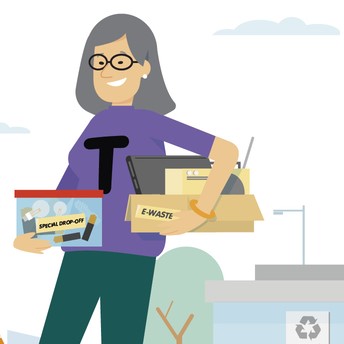 | TAKE items to drop-off points Items that cannot be disposed of via kerbside bins or verge collection should be taken to various drop-off points. The City of Gosnells hosts one community waste drop-off day per year at its Operations Centre, usually around the first week of April. This enables residents to drop off difficult to dispose of items such as paint, motor oil, household chemicals, gas cylinders, aerosol cans and car batteries, as well as bulk cardboard, polystyrene, tyres and e-waste. During the year, residents can take a range of household hazardous waste to one of the WA Government's free-to-use drop-off points (non-commercial waste - 20kg or 20L per material type). Household batteries can be taken to businesses participating in the B-Cycle battery recycling program. You can also drop off household quantities of aerosol cans, mobile phones and chargers, printer cartridges and light globes to recycling hubs within all the City's libraries and the Civic Centre. |

